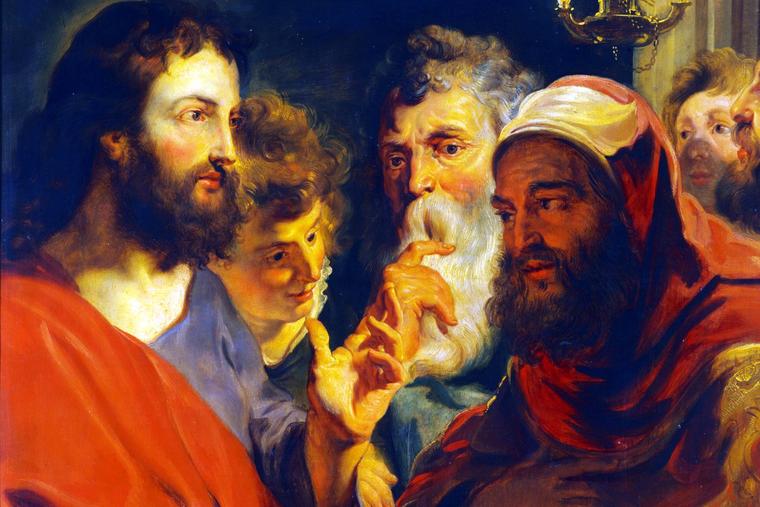- Feb 5, 2002
- 166,633
- 56,267
- Country
- United States
- Faith
- Catholic
- Marital Status
- Married
- Politics
- US-Others
‘Let your light so shine before men,’ says Our Lord, ‘that they may see your good works and give glory to your Father who is in heaven.’
A Protestant with whom I was debating claimed that Jesus never mentioned meritorious good works in relation to salvation, but only faith. But this is simply false, and rather spectacularly so. In his discourse at the Last Supper, Jesus spoke the following words to his disciples, who were presumably saved (excepting Judas):
Continued below.

 www.ncregister.com
www.ncregister.com
A Protestant with whom I was debating claimed that Jesus never mentioned meritorious good works in relation to salvation, but only faith. But this is simply false, and rather spectacularly so. In his discourse at the Last Supper, Jesus spoke the following words to his disciples, who were presumably saved (excepting Judas):
- “He who believes in me will also do the works that I do; and greater works than these will he do, because I go to the Father.” (John 14:12)
- “If you love me, you will keep my commandments.” (John 14:15)
- “He who has my commandments and keeps them, he it is who loves me; and he who loves me will be loved by my Father, and I will love him and manifest myself to him.” (John 14:21) — Here, the questions of who loves Jesus, and even the indwelling (cf. 16:7, 13) are dependent upon not just faith, but on whether one keeps the commandments.
- “Abide in me, and I in you. As the branch cannot bear fruit by itself, unless it abides in the vine, neither can you, unless you abide in me. I am the vine; you are the branches. He who abides in me, and I in him, he it is that bears much fruit, for apart from me you can do nothing. If a man does not abide in me, he is cast forth as a branch and withers; and the branches are gathered, thrown into the fire and burned. ... By this my Father is glorified, that you bear much fruit, and so prove to be my disciples.” (John 15:4-6, 8) — “Fruit” is, of course, good works.
- “If you keep my commandments, you will abide in my love ... [note the conditional, implying a state of affairs where they could cease abiding in his love, and being justified and eschatologically saved. Judas was, in fact, an example of this happening.” (John 15:10; see 17:12) — Jesus alluded to such a possibility also when he said, “I have said all this to you to keep you from falling away.” (16:1)
- “This is my commandment, that you love one another as I have loved you.” (John 15:12)
- “You are my friends if you do what I command you.” (John 15:14)
- “This I command you, to love one another.” (John 15:17)
- To be sure, in the same discourse, Jesus also said “believe also in me” (14:1; cf. 16:27, 30-31; 17:8), but 11 verses later, he coupled this belief with inexorable good works: “he who believes in me will also do the works that I do; and greater works than these will he do, because I go to the Father” (14:12). Moreover, Jesus, in praying to the Father at the Last Supper, says, “they have kept thy word” (17:6).
Continued below.

Why the Apostles Would Have Flunked Out of Protestant Seminary
‘Let your light so shine before men,’ says Our Lord, ‘that they may see your good works and give glory to your Father who is in heaven.’
